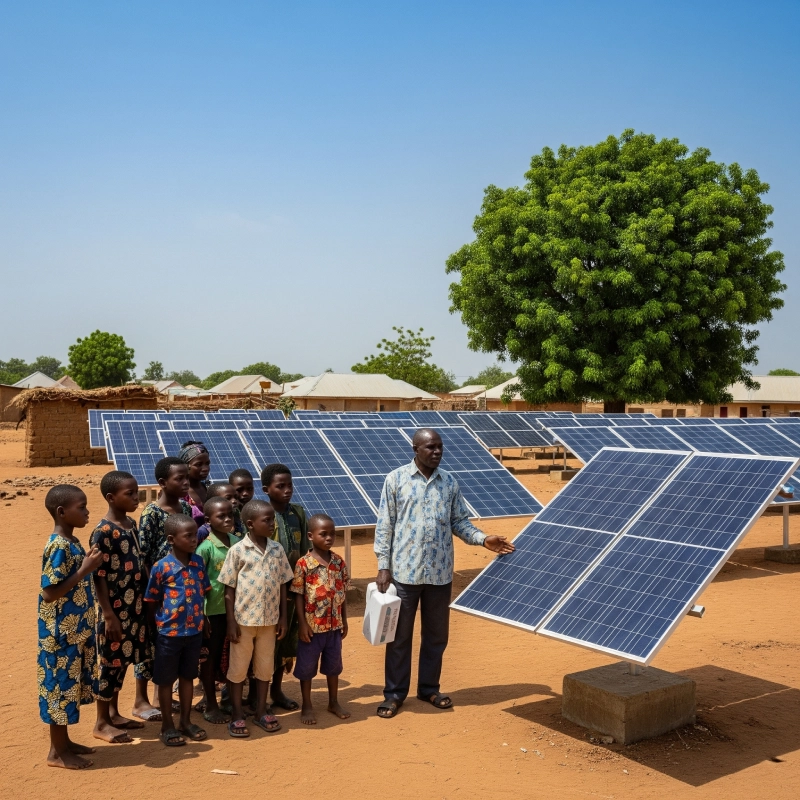In many parts of Nigeria, especially in rural areas, electricity remains a luxury rather than a basic necessity. Millions of Nigerians still live without reliable access to power, which limits their opportunities for education, healthcare, and economic growth. But thanks to the growing adoption of solar energy, this is beginning to change.
At The Haven Energy Resources, we believe solar power is more than a technology — it’s a tool for empowerment. With the right systems in place, rural communities can unlock their full potential and enjoy the benefits of clean, sustainable electricity.
Here’s how solar power is transforming rural Nigeria and why it’s a game-changer for the future:
1. Powering Health Clinics and Schools
In many villages, health centers are forced to operate without lighting, refrigeration, or essential medical equipment because of unreliable or non-existent electricity. This puts lives at risk, especially during emergencies or childbirth at night.
By installing solar-powered lighting, refrigerators, and equipment, rural health clinics can now store vaccines properly, perform procedures safely, and serve their communities more effectively.
Similarly, schools with solar power can run computers, fans, and lighting, allowing for longer study hours and modern teaching tools — which dramatically improves the quality of education.
2. Supporting Small Businesses and Local Economies
Access to electricity is essential for running businesses — from barbershops and tailoring services to charging stations and food processing operations. In rural communities, solar energy allows entrepreneurs to extend business hours, reduce dependence on costly fuel generators, and improve productivity.
This not only helps individuals earn more income, but also contributes to the overall economic growth of the community.
3. Enabling Clean Water Access and Agricultural Growth
Many rural communities rely on manual wells or streams for water. With solar-powered water pumps, villages can access clean water for drinking, irrigation, and sanitation, drastically improving hygiene and agricultural output.
Farmers can now irrigate their crops more consistently and increase yields, helping to improve food security and livelihoods across entire regions.
4. Creating Jobs and Skill Development
The spread of solar technology is creating new opportunities for training, employment, and local enterprise. Young people can learn how to install and maintain solar systems, creating a new generation of solar technicians, engineers, and entrepreneurs.
At The Haven Energy Resources, we are committed to training local talent and working with community leaders to deliver long-term impact.
5. Promoting Energy Independence and Sustainability
Unlike fuel generators that depend on expensive, polluting diesel or petrol, solar systems provide free and renewable power from the sun. This not only helps rural communities reduce costs and environmental impact, but also ensures they aren’t left behind as the world moves toward greener energy solutions.
By building decentralized solar mini-grids or standalone home systems, villages can enjoy 24/7 electricity without relying on the unstable national grid.
Conclusion
Solar power is lighting up the future of rural Nigeria — improving health, education, and economic opportunities where they’re needed most. At The Haven Energy Resources, we’re proud to play a role in this transformation by delivering reliable, affordable solar solutions to underserved communities.
Whether it’s a small home system, a solar-powered borehole, or a community microgrid, our team is ready to help bring power and progress to where it matters most.





